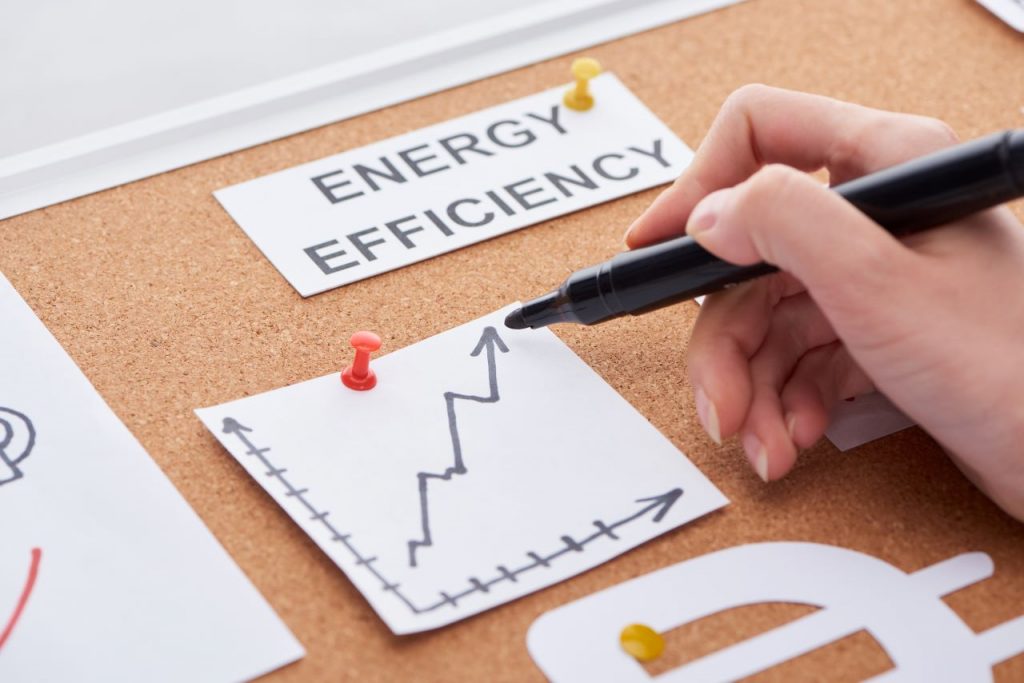If you own a building, you’ve probably heard the term “Energy Performance Certificate” or EPC thrown around. While people may talk about the legal requirements, you may not know what data you get from an EPC or where to find the certificate.
However, if you own any buildings, it’s crucial to learn about EPC because it may cause legal trouble if you don’t. While learning about EPC might be confusing, with the right guidance, you can properly understand its purpose.
To help you understand better, at Gio Property Solutions we’ve put together our guide on energy performance certificates. The guide covers everything you need to know about EPCs and answers questions like “What is the best epc rating?”, and “What is the lowest rating?”.
Let’s get started!
What are Energy Performance Certificates (EPC)?
The Energy Performance Certificate or EPC provides information about your building’s energy performance. They include ratings on the efficiency of your building, as well as ways you can improve its energy performance.
The rating shows the building’s energy efficiency and environmental impact on a scale from A-G. If your building is rated A, then it’s most efficient and vice versa. These ratings tend to vary based on the age, location and condition of your property.
These certificates are similar to the ones provided with appliances like refrigerators and washing machines. These certificates give you a general idea of the energy used in your building(s) and how you can improve its efficiency.
Is It Compulsory to Have an Energy Performance Certificate?
If you’re looking to sell or rent your property, you need to have an EPC for potential buyers and tenants. It helps to ensure that your building meets the minimum standards and is safe to live in.
Additionally, builders must provide an EPC to commissioners for newly constructed buildings. If they fail to do this within five days of the building completion date, the landlord can take legal action.
In other words, you need to have an EPC certificate for new buildings or properties you’re looking to sell or rent. It’s a legal obligation and you need to find the right person to conduct these inspections, like the technicians at Gio Property Solutions.
What Happens If You Have a Low EPC Rating?
If you receive a low EPC rating of F or G, you will need to conduct repairs and make changes to your building(s). A low rating means excessive consumption of energy, leading to additional costs and significant environmental impact.
You have to meet these obligations as the legislation states that they want to improve the worst-performing properties in terms of legal efficiency. This Legislation is put in place to meet the UK’s CO2 targets.
Additionally, a building with a low energy efficiency score generally leads to higher electricity and gas bills. Making changes to improve your EPC rating can save you money in the long run as well as ensure compliance with regulations.
How is an EPC Test Conducted?
If you’re looking to get an EPC certificate, you have to hire an energy assessor to carry out tests. They will come to your property and conduct these tests by assessing your heating and hot water system, the effectiveness of the building’s construction, and lighting.
The time taken for these tests depends on the size, type and location of your property. However, it’s estimated that an EPC test for an average three-bedroom home would take under two hours.
However, you need to ensure that the assessor is fully accredited. Otherwise, you may face issues in the future. Therefore, it’s better to contact an EPC assessor with complete accreditation, like Mark, the technician at Gio Property Solutions.
If you are wondering how to prepare for an EPC, follow these steps. Make sure to declutter your property, and provide access to all areas including the loft and boiler room. Additionally, have documentation ready for any recent energy-efficient improvements you have made.
What Else is Offered in an EPC Report?
The EPC report not only rates energy efficiency but also offers you valuable recommendations for improvements. These suggestions are designed to assist you in understanding how to raise the energy efficiency rating of your home. Our Recommendations Report will be a thorough analysis, making it as easy as possible for you to improve upon the EPC score of your property.
These recommendations may consist of making minor changes, such as adding energy-efficient lighting or updating insulation, but they can also be major changes such as replacing outdated windows or making improvements to the heating system.
By implementing the proposed changes, you can enhance the energy efficiency of your property and help create a more sustainable and greener future.
Contact Gio Property Solutions for Energy Performance Certificates Today!
This concludes our in-depth energy performance certificate guide. While EPC tests may not feel useful, they can help save you money and increase the value of your home.
However, that being said, you need someone reliable and accredited to conduct these tests and provide you with a correct and detailed Energy Performance Certificate. The team at Gio Property Solutions are well-experienced in providing an accurate evaluation of your building’s energy performance.
Our Level 4 or higher NDEA Accuracy assessor ensures you get accurate information for your Energy Performance Certificate. We can also provide you with solutions on how to improve your building’s energy performance. To learn more about us, visit our EPC page or contact us to book an appointment today!


